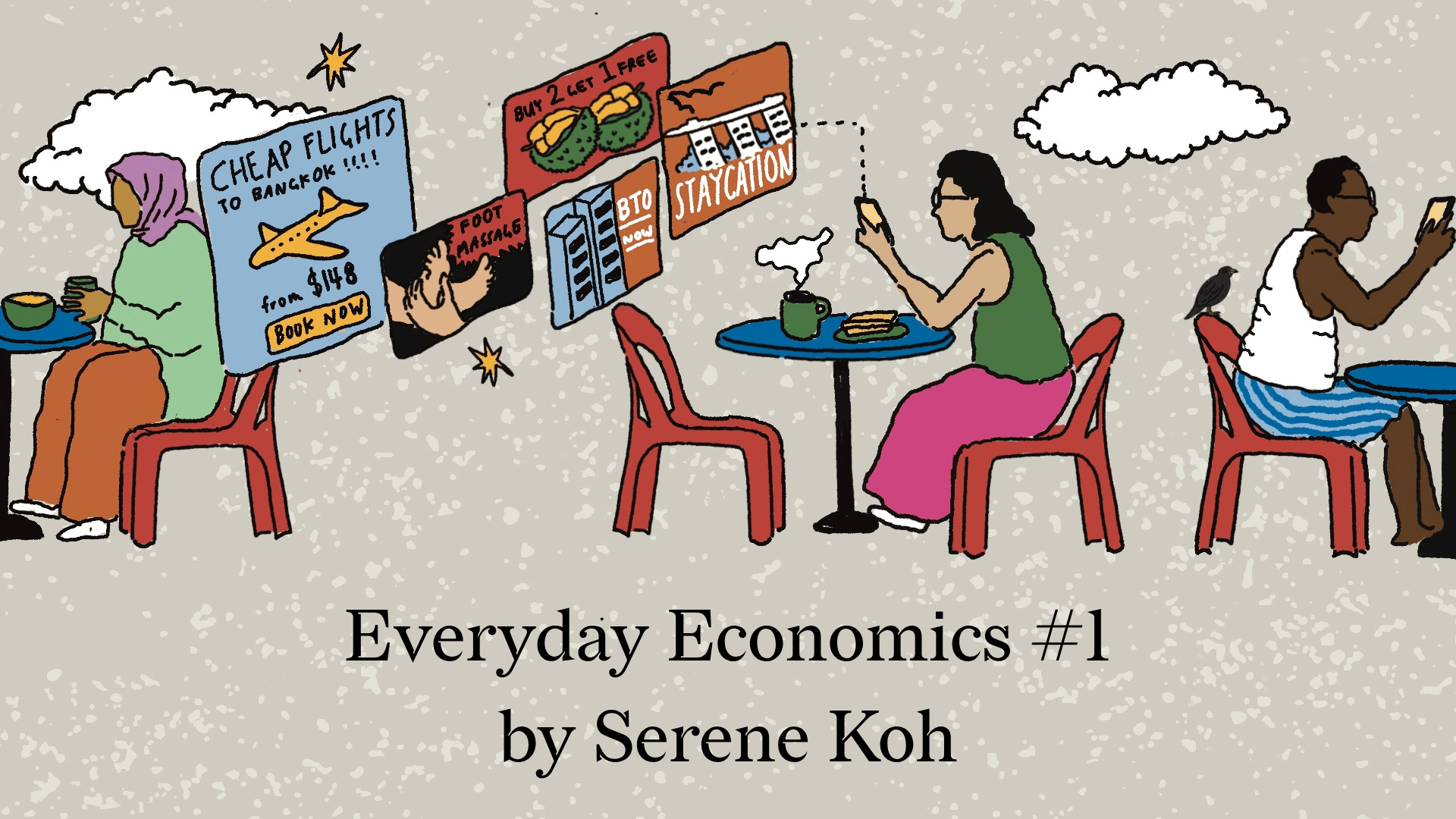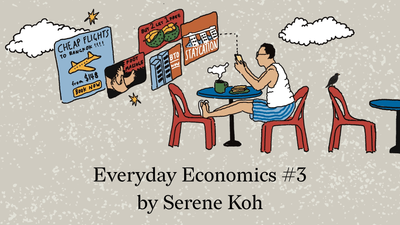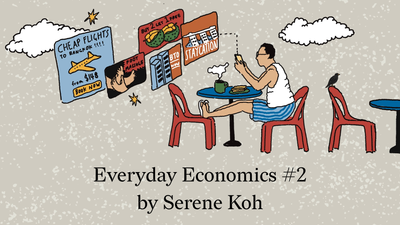As part of my job, I do a fair amount of teaching and lecturing. And as anyone who has heard me speak can attest, I talk about my mother a lot. To me, Mom is the quintessential bundle of human “biases” and apparent irrationalities, which for a behavioural scientist, is gold.
For instance, my mother is scrupulous when it comes to saving water—she reminds us all the time not to take showers that are too long, to turn off the faucet while soaping our hands, and to water the plants with a watering can because a hose would be too wasteful.
And yet when it comes to washing vegetables, no amount of water is too much. Basin after basin of water is used to soak all her vegetables before cooking, and rinsing bunches of spinach under water running on full blast is perfectly acceptable.
From a physics standpoint, this distinction makes no sense—a litre of water is a litre of water regardless of how you use it. But mentally, my mother clearly has separate “accounts” for water, each with its own set of rules:
In the shower account, water is precious. She grew up in the 1960s in Singapore when water rationing was a thing, and so each drop weighs heavily on her conscience.
If you enjoy Jom’s work, do get a paid subscription today to support independent journalism in Singapore.
In the washing vegetable account, though, saving water is secondary to ensuring that her vegetables are clean. All that grit and soil has to be soaked off, no matter how much water it takes.
The category makes the difference.
This is what Richard Thaler, the Nobel Prize–winning economist, calls mental accounting. He described it mainly in terms of money, but the principle can apply to any resource—that instead of seeing it as one big pot, we put them into little mental “jars” and treat each jar differently.
For example, imagine you’re on holiday. You might happily spend S$20 on an overly sweet, questionably alcoholic umbrella drink. Back home though, a S$7 bubble tea might feel overly indulgent. Rationally, the money is the same—almost three times as much, in fact—but because it’s your holiday jar, it doesn’t feel like “real” money.
Economists have studied this. Research consistently shows what you might guess from your own experience: when money feels like a bonus or a windfall, people are far more likely to spend it freely.
In lab experiments, participants who were told they’d received “extra” funds—say, a surprise lottery win—took bigger risks than those using their regular income.
Researchers call this the house-money effect, named after the phenomenon where gamblers take greater risks with their gains from the house than with their principal amount. In other words, money in your bonus jar is treated differently from money in your income jar.
Closer to home, consider the CDC vouchers that every Singaporean household has received. They’re meant to ease living costs while supporting local merchants, and they have the same monetary value as cash. Yet many of us treat them differently.
Because the vouchers weren’t earned like income, and because they exist as credits on your phone or on paper slips, they sit in their own mental jar. And once they’re in that jar, it’s easy to spend them more freely—for better or worse—on little extras we might otherwise have passed over.
Or consider Singapore’s Electronic Road Pricing (ERP) system. Drivers preload their cashcards and once the balance is topped up, it feels as though that money has already left their wallets. So when the gantry beeps, it doesn’t sting in the same way it does when handing over cash.
Digital payments dull what’s known as the “pain of paying”, the small mental twinge we feel when parting with money. They’re convenient, but it also means we lose awareness of how much we’re really spending. One way to restore that awareness is through a small amount of friction. Imagine if, each time you topped up your cashcard, the system showed you how much you’ve spent on road charges that month, or that you were topping up more frequently than usual. A small prompt like that, delivered at the right moment, could bring the cost of driving back into focus.
As it is, we have an ERP system where the charge is real enough, but in our minds, it’s coming out of a transport jar that has already been paid into. Consequently, this also means that the ERP charge—at the point of driving—loses some of its power to discourage road use.
Thaler showed that this quirk of human psychology explains a lot about everyday financial behaviour. It helps us make sense of why people save diligently in one account while simultaneously carrying expensive credit card debt, or why you might blow your bonus on an expensive gadget instead of saving it for a rainy day. Our brains create mental categories, and our behaviour follows the rules we assign to each.
Mom would be baffled to hear that her spinach-rinsing habits are a miniature economics lesson. She isn’t trying to illustrate Nobel-winning theory; she’s just doing what feels right to her.
And that, really, is the heart of “everyday economics”—the quiet logic behind ordinary choices, the stories hidden in our habits. Economists can dress it up as mental accounting, but my mother would just call it common sense.
That is what I hope this occasional column will explore. Economics is often treated as something distant—charts, markets, the pronouncements of central bankers. Yet the discipline was born to understand how people like my mother decide what matters—how they weigh comfort against cost, or memory against money.
In each column, I’ll share these small, telling moments—why we queue for certain hawker stalls but not others, how we split a restaurant bill with friends, and how we can be both careful savers and impulsive spenders.
I hope to show that behind every economic model are real people, making decisions with imperfect information, shaped by habit, memory, and feeling.
And I look forward to having that conversation with you—about the choices, habits, and behaviours that shape how we live. Because economics, at its best, is really about us.
Serene Koh is a behavioural scientist and director of the Behavioural Insights Team in Singapore. She also teaches behavioural science at the National University of Singapore.
Letters in response to this piece can be sent to sudhir@jom.media. All will be considered for publication on our “Letters to the editor” page.
If you enjoy Jom’s work, do get a paid subscription today to support independent journalism in Singapore.







